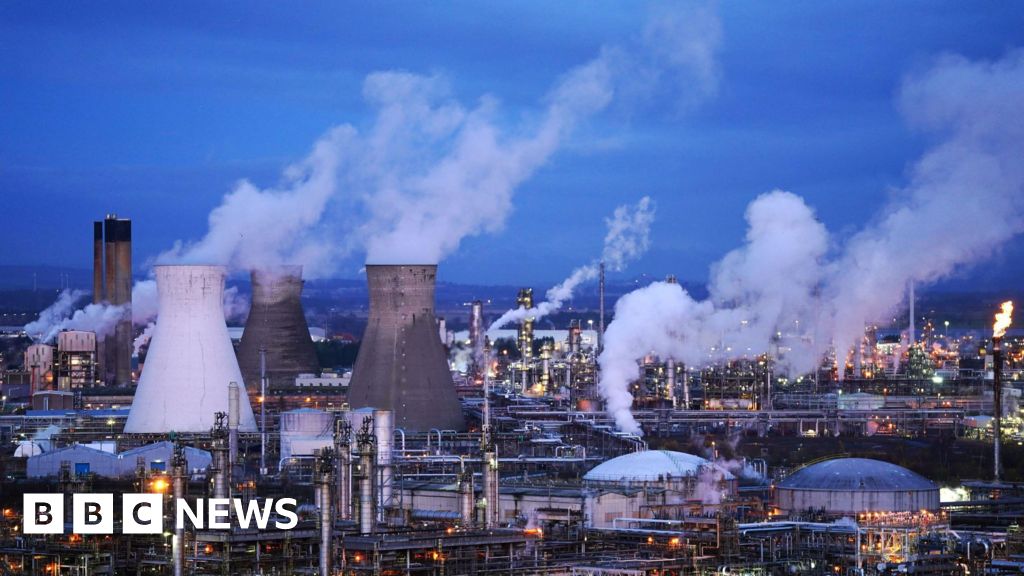Scotland’s only oil refinery is to close by the summer of next year, with the loss of 400 jobs.
Petroineos said the closure of Grangemouth was due to it being unable to compete with sites in Asia, Africa and the Middle East.
The company said the decision would “safeguard fuel supply for Scotland” by converting the site into a terminal able to import petrol, diesel, aviation fuel and kerosene into Scotland – but would require a workforce of fewer than 100 employees compared to the current 475.
The company announced last November it intended to close the plant, but union leaders had hoped the facility could remain open longer to provide time for a green alternative to be established at the site.
The BBC understands the refinery – the oldest in the UK – is currently losing around half a million dollars a day and is on course to lose around $200m in 2024.
Petroineos said they expected the new hub for finished fuels to open by early summer next year.
The oil refinery was opened by BP in 1924.
It expanded into petrochemicals in the 1950s and serves as the primary supplier of aviation fuel for Scotland’s main airports, while being a major supplier of petrol and diesel ground fuels across the Central Belt.
It accounts for about 14% of the UK’s overall refining capacity and supplies almost two-thirds (65%) of demand for refined oil products in Scotland.
Ineos acquired the site in 2005 and are responsible for the entire plant, while the the refinery itself is owned by Petroineos – a joint venture between Ineos and PetroChina.
Petroineos stated that the size of the site meant that “high levels of capital expenditure each year” were spent on it, which outweighed the company’s earnings.
Frank Demay, the company’s CEO, said: “Demand for key fuels we produce at Grangemouth has already started to decline and, with a ban on new petrol and diesel cars due to come into force within the next decade, we foresee that the market for those fuels will shrink further.
“That reality, aligned with the cost of maintaining a refinery built half a century ago, means we are exploring ways to adapt our business.
“The action we are taking to create an import terminal will safeguard fuel supply for Scotland. We currently expect Grangemouth to be ready to operate as a national distribution hub for finished fuels in Q2 next year.”
The company said it has invested more than $1.2bn in the refinery since 2011 while recording losses of more than $775m during the same period.
The firm said the new terminal would be able to import petrol, diesel, aviation fuel and kerosene into Scotland from vessels arriving via the Firth of Forth.
Grangemouth is one of six refineries in the UK and the only one in Scotland.
In recent years the site has been targeted by environmental protestors calling for it to be closed.
A feasibility study funded by the Scottish and UK governments, called Project Willow, is also examining whether Grangemouth could become a low-carbon fuels manufacturing hub in future.
But a source close to the firm said even if such plans were viable they would not come in time to save the jobs which are expected to be lost next year.
The INEOS businesses at Grangemouth – INEOS O&P UK and INEOS FPS – released a statement saying it was ““business as usual” for those companies.


